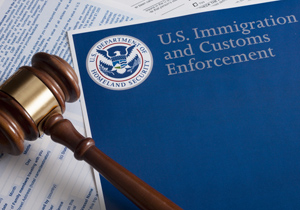Does ban on encouraging illegal immigration violate First Amendment? SCOTUS to decide

Image from Shutterstock.com.
The U.S. Supreme Court will consider whether a 1986 law making it a crime to encourage unauthorized immigration is an unconstitutional infringement on free speech.
The high court agreed last month to decide whether the law violates the First Amendment, the New York Times reports.
The 9th U.S. Circuit Court of Appeals at San Francisco had struck down the law in December 2018 in the case of Evelyn Sineneng-Smith, who ran an immigration consulting firm. Sineneng-Smith had charged her clients $6,800 to file applications for permanent residency status under a program that had expired.
Sineneng-Smith was convicted of mail fraud for filing the applications and was also convicted for encouraging an immigrant to remain in the United States in knowing or reckless disregard of the fact that it would violate the law. Sineneng-Smith is not challenging the mail fraud conviction.
The 9th Circuit said the encouragement law “criminalizes a substantial amount of constitutionally protected expression.” The statute would reach “a loving grandmother who urges her grandson to overstay his visa,” a political speaker who urges people to disregard immigration laws, and a lawyer who tells a client to “remain in the country while contesting removal,” the 9th Circuit said.
Sineneng-Smith was convicted under part of the statute that provides for a greater penalty when a person encourages illegal immigration for financial gain. The government cert petition asks the court to decide only the constitutionality of the ban on encouragement for financial gain.
The case is United States v. Sineneng-Smith. The SCOTUSblog case page is here.



